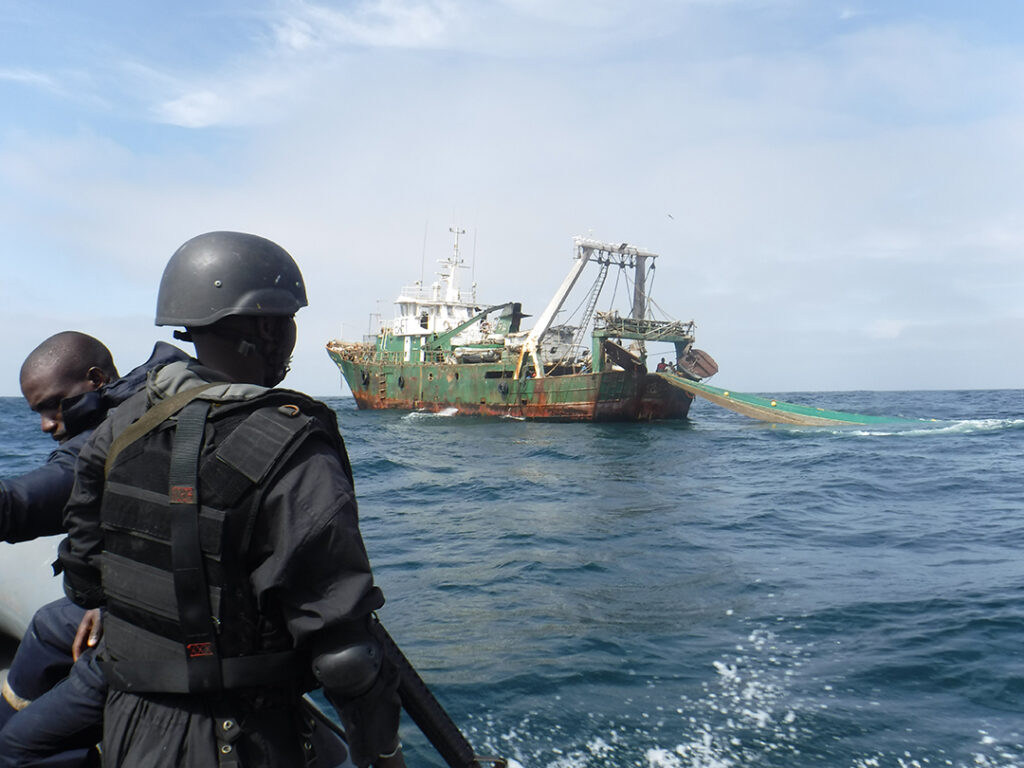ADF STAFF
A new report by the Financial Transparency Coalition (FTC) reveals that 48.9% of the world’s industrial and semi-industrial trawlers involved in illegal fishing operate in Africa. West Africa, the world’s epicenter for illegal, unreported and unregulated (IUU) fishing, attracts 40% of the world’s illegal trawlers.
IUU fishing costs the continent up to $11.49 billion annually. The majority of illegal fishing vessels in Africa are Chinese. Of the top 10 companies engaged in illegal fishing globally, eight are from China. The others are from Colombia and Spain, according to the FTC report.
Overfishing has led to drastically declining fishing stocks, driven food insecurity and rising prices, and has forced local fishermen to venture further out to sea. They often return with little or no catch.
Lakshmi Kumar, policy director at Global Financial Integrity, which contributed to the FTC report, told the BBC that while global fish stocks are in steep decline, global consumption of seafood has steadily risen since the 1960s.
“As is always the case, the answer is not simple, it is quite complex,” Kumar told the BBC. “The truth is that governments [such as] Namibia, Senegal, Ghana have said that fish resources are a priority and they want to work toward protecting them. So you’ve seen laws get passed which say that only local vessels or domestically registered vessels can fish.”
However, Kumar noted that in Ghana 90% of registered fishing vessels are Ghanaian on paper, but are actually owned by Chinese companies.
That is a process known as “flagging in,” meaning that foreign companies use and abuse local rules to flag a foreign-owned and operated fishing vessel into an African registry and fish in local waters. It helps a vessel’s owners dodge financial charges and other regulations.
There is little oversight of the online open registries. This means that a fishing company in China can register to fish in Ghana and pay the registration fee electronically. China is the world’s worst IUU fishing offender, according to the IUU Fishing Index.
Illegal fishing is driving fish stocks in parts of Africa to the brink of collapse.
In Ghana, for example, small pelagic fish populations, such as sardinella, have dropped 80% in the past two decades. One species, sardinella aurita, is fully collapsed, according to the Environmental Justice Foundation. IUU fishing is also linked to other sea crimes, such as piracy, human trafficking and drug smuggling.
Systemic corruption helps keep illegal fishing vessels in African waters, according to Kumar.
“One way to counteract that is to talk about the demand side of this,” Kumar told the BBC. “What can countries that are actually consumers of IUU fish products do in terms of both the resourcing of countries where they’re taking the supply from, but also making sure that on their end there are better supply chain due processes where you aren’t an active contributor to food insecurity in the developing world.”

